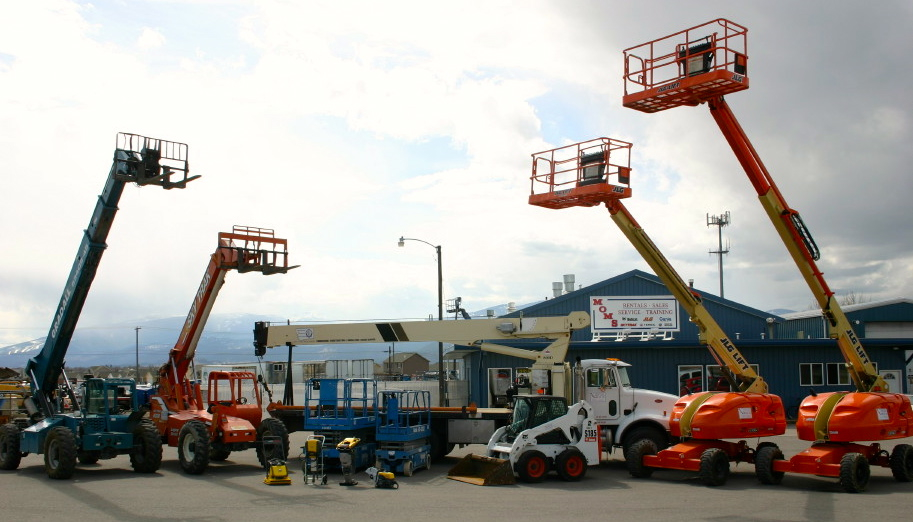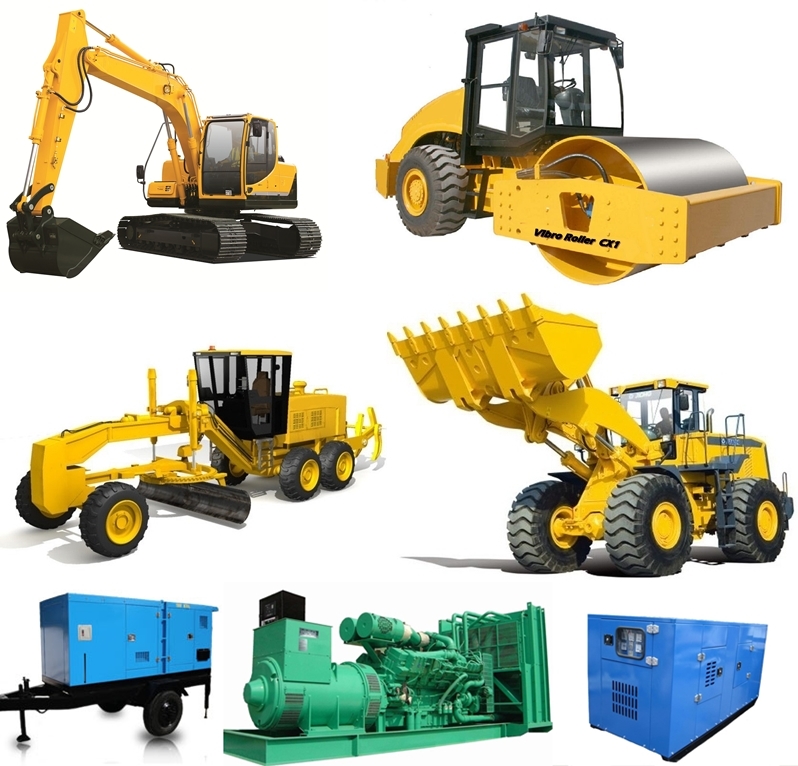Heavy Equipment Rental: Big Equipment for Any Construction Job
Heavy Equipment Rental: Big Equipment for Any Construction Job
Blog Article
Optimize Your Budget Plan by Understanding the Prices Connected With Building Equipment Services
Comprehending the full extent of expenses related to building and construction devices rentals is critical for optimizing your budget. While the first rental charge might appear straightforward, countless extra expenses-- such as transport, fuel additional charges, and upkeep-- can quickly gather, affecting your economic planning. Being mindful of various fees and the intricacies of rental contracts can help prevent unanticipated monetary problems. What strategies can be utilized to effectively handle these prices and ensure a much more reliable rental experience?
Introduction of Rental Costs
When taking into consideration building equipment leasings, understanding the linked costs is extremely important for efficient budgeting and task planning. Rental prices can vary dramatically based on numerous elements, consisting of equipment kind, duration of service, and location. The preliminary rental fee commonly reflects the devices's market need and its associated operational capacities, influencing the general expenditure.
Along with the base rental price, ancillary expenses might emerge, such as transportation charges, gas surcharges, and upkeep costs. It is important to make up these additional costs to properly analyze the total expense of leasing tools. Additionally, the rental duration can influence pricing; longer leasings might certify for reduced prices, while temporary rentals might incur greater day-to-day charges.

Failure of Rental Prices
A detailed understanding of rental prices is necessary for specialists and job managers aiming to enhance their budget plans. Rental prices for building devices generally consist of several parts, consisting of base rates, time-based charges, and usage costs.
Base prices are the core fees related to the rental of the tools, usually established by the kind and size of the equipment. These prices can vary significantly, affected by aspects such as equipment need, accessibility, and regional market fads. Time-based fees, which might be daily, weekly, or monthly, offer to accommodate various job timelines and rental periods.
Furthermore, rental rates might include use fees, which are applicable when tools is used past a specified limit, making sure that the rental company can make up deterioration. Seasonal need changes can additionally impact rental prices, with peak building periods usually commanding higher rates.
Furthermore, recognizing the rental business's policies pertaining to upkeep and insurance policy can supply additional understanding into the general price framework. By analyzing these parts, service providers can make educated choices, guaranteeing the option of rental equipment lines up with both task requirements and spending plan restrictions.
Extra Charges to Take Into Consideration
Recognizing the intricacies of additional fees is important for service providers to handle their total service expenditures effectively. Past the basic rental rates, my link various extra costs can dramatically influence the complete price of devices service. These charges commonly consist of shipment and pickup fees, which can vary based on range and logistics involved in transporting the equipment to and from the work website.
Furthermore, some rental companies might enforce fuel surcharges if the equipment is returned with much less gas than when leased. It is also necessary to know potential cleansing charges, especially for specialized tools that calls for complete maintenance after usage.

Extensively examining the rental agreement and clarifying these extra fees ahead of time can assist contractors stay clear of unforeseen costs and make sure that budget plans continue to be intact throughout the task lifecycle.
Maintenance and Fixing Costs
Normal maintenance and repair costs are frequently forgotten elements that can significantly influence the total cost of building and construction equipment leasings. When renting devices, it is crucial to think about not just the rental fees however also the prospective expenses connected with keeping the equipment in optimum operating condition.
Lots of rental firms include basic maintenance as component of the rental arrangement; however, a lot more considerable repair work or unforeseen failures can result in extra expenditures. It's important to evaluate the rental contract very carefully to recognize what upkeep solutions are covered and what responsibilities fall on the renter.
Additionally, devices that is not well-kept can cause ineffectiveness on duty website, possibly raising and creating hold-ups job expenses. To alleviate these dangers, it is a good idea to carry out routine evaluations and preserve open communication with the rental company concerning any issues that arise throughout usage.
Insurance Policy and Responsibility Prices
Insurance policy and responsibility costs are essential components that can significantly influence the total cost of building equipment services (construction equipment rentals). These costs make certain that both the rental business and the client are safeguarded check that from potential economic losses occurring from accidents, damages, or theft throughout the rental period

In addition, clients need to know any kind of deductibles or exemptions in the insurance plan, as these can affect prospective out-of-pocket expenditures. Comprehending the terms of any insurance protection is vital to prevent unanticipated costs. Eventually, budgeting for insurance and obligation costs can aid guarantee a smoother rental experience and secure versus economic dangers related to building and construction projects.
Final Thought
Finally, a comprehensive understanding of the expenses connected with building and construction equipment rentals is vital for reliable spending plan management. By evaluating rental rates, extra charges, upkeep expenditures, and insurance policy companies, needs and people can decrease unexpected expenditures. This strategic method not only enhances cost-effectiveness but also guarantees that projects progress smoothly and efficiently. Inevitably, educated decision-making pertaining to tools services adds to the general success of building endeavors.
Rental costs can differ dramatically based on numerous elements, including tools type, period of service, and place (mini excavator rental). The rental period can influence prices; longer rentals might qualify for affordable rates, while temporary services may sustain higher daily fees
By conducting thorough research study and engaging with reputable rental business, contractors can properly navigate the intricacies of rental pricing, eventually optimizing their monetary sources.
Beyond the common rental rates, different additional costs can considerably influence the total expense of tools leasing. Rental firms often supply liability insurance coverage that covers injuries to 3rd parties or damage to property, while equipment damage insurance policy can cover the cost of repair services or substitute if the rented devices is harmed.
Report this page